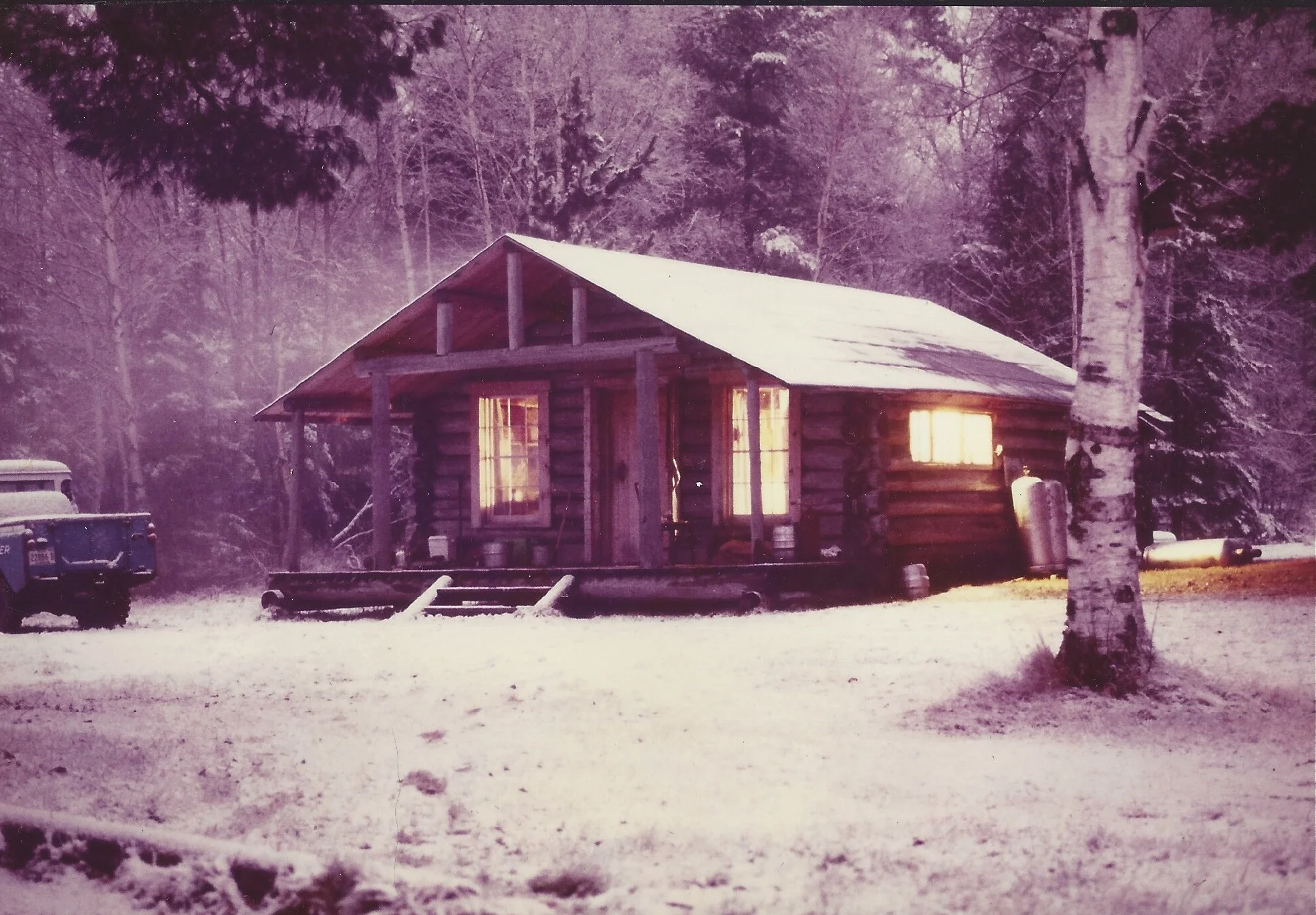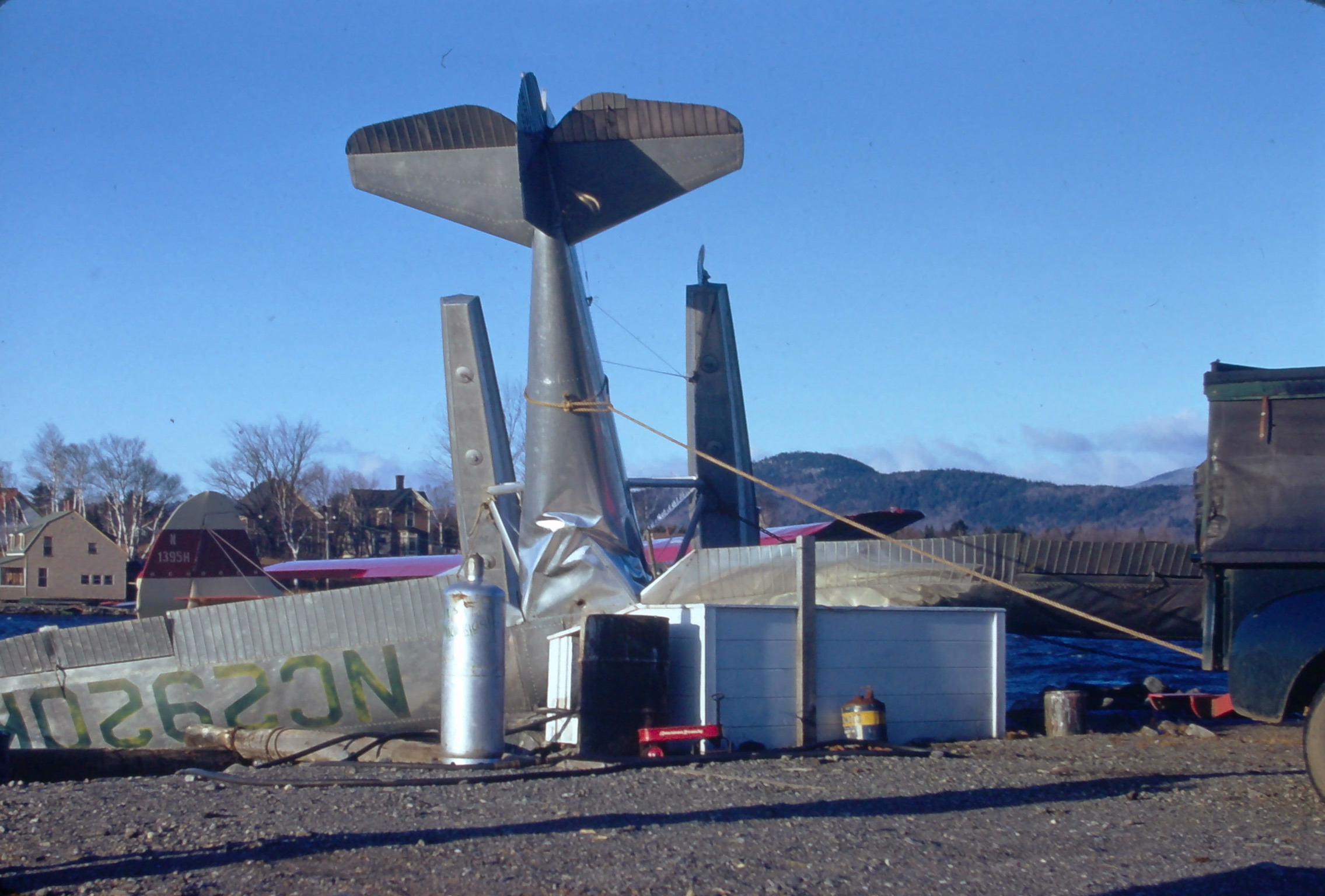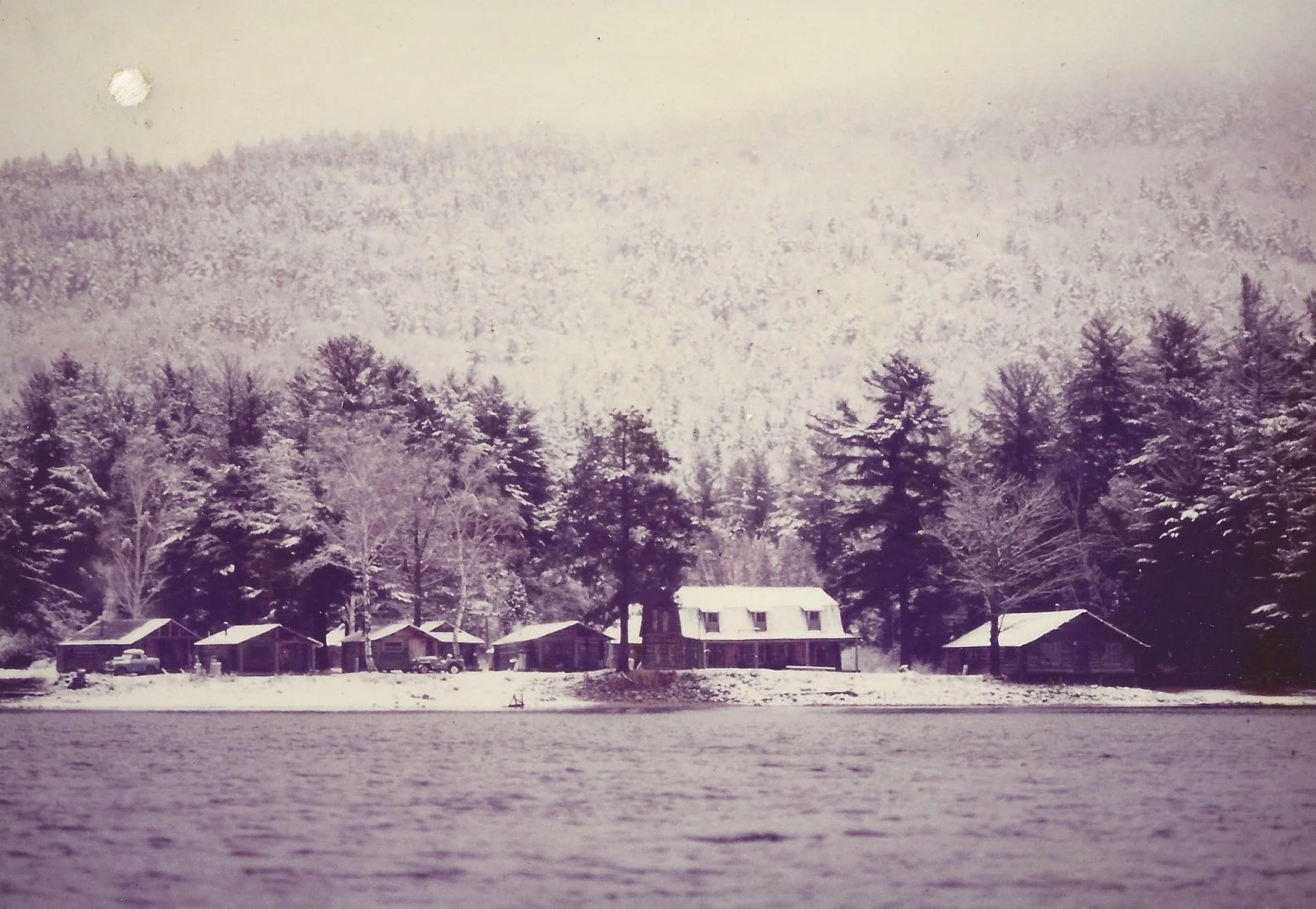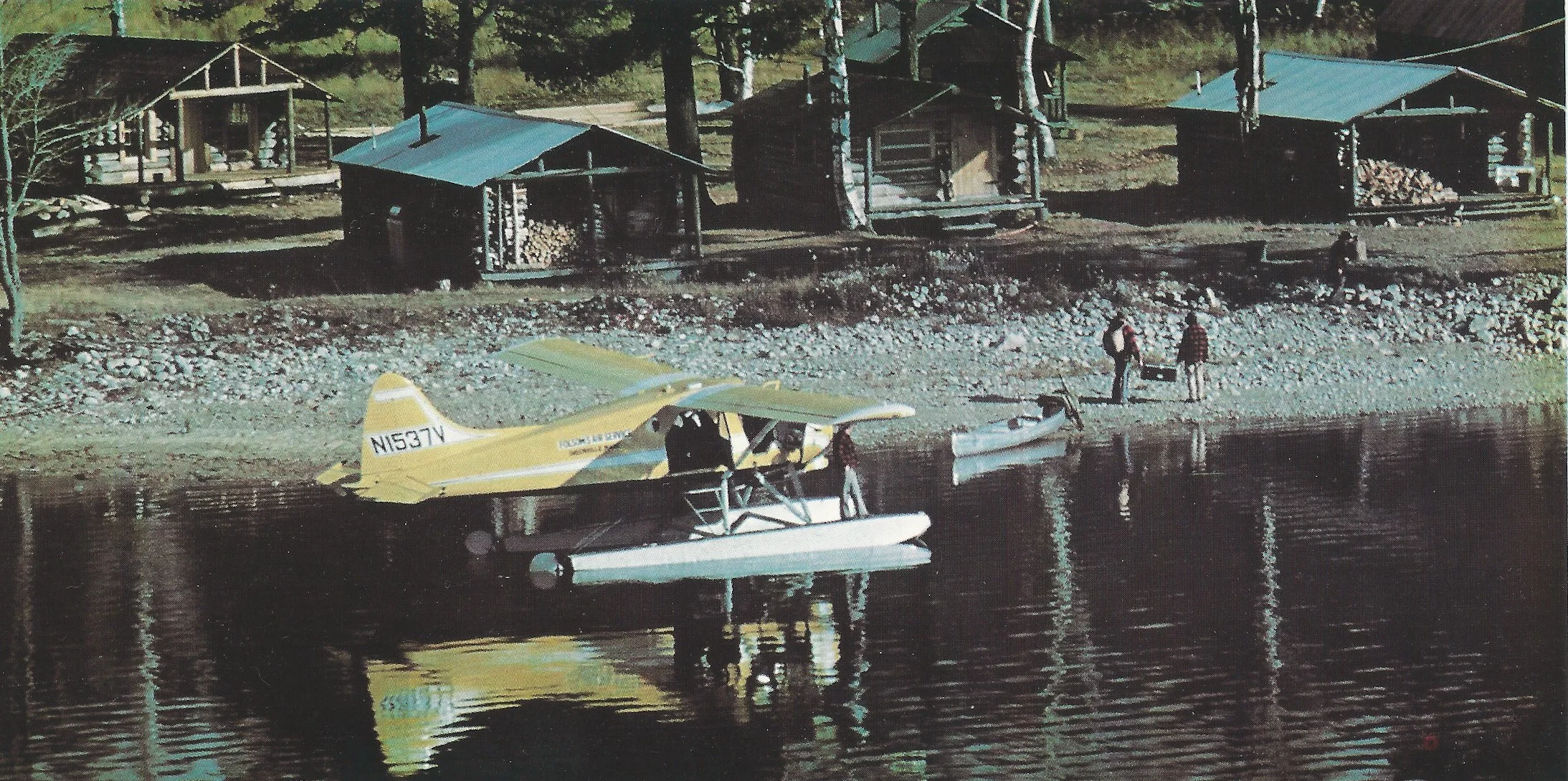Gary Dumond Remembers: Maine Warden Pilots
/A REVIEW FROM BACKCOUNTRYPILOT.ORG
Jake Morrel has released a new memoir from conversations with long-time Maine Warden Service pilot Gary Dumond, in which he recounts a career of bush flying adventures in Maine's fish and game airborne fleet.
ABOUT THE BOOK
Jake Morrel's follow-up to his wonderful personal memoir of starting a lodge in northwest Maine is titled Gary Dumond Remembers: Maine Warden Pilots.
The book is essentially a conversation with Gary Dumond, who after returning home from Vietnam with 1,410 hours flown as a helicopter pilot, logged roughly 20,000 hours as a Maine Warden Service pilot in the Maine North Woods, and his tales are as numerous and entertaining as one could expect from an old aviator.
Morrel is doing good work: He's recognized the fading vessel of knowledge the pilots from that era represent, and is working to archive their narrative for all time. He also preserves their spoken vernacular in the book, preserving a bit of culture.
What follows is a few excerpts from Gary Dumond Remembers, which can be purchased directly from Maine Authors Publishing for $21.95. —Zane Jacobson, editor@backcountrypilot.org
Spider Lake Rescue
GARY: Back in '74, I'd been asked to take one of our photographers out for a couple of days, and we were doing stories on beaver trapping in northern Maine.
'Course when you think about trapping you think about Ray Porter. So I made contact with Ray and I told him what we wanted to do and we decided we'd meet at Churchill.
Just off Churchill there's a stream and of course where he landed we couldn't land. We had to land, taxi up the stream and then snowshoe to where Ray was. And we followed him around that day, two or three times and got pictures.
MAC’S PIPER PA-12 AFTER LANDING ON THE ROUGH DAAQUAM AIR STRIP
So, that night the photographer and I decided we were going to spend the night with Jack at his camp on Spider Lake. So, we get there right before supper was on. And around seven o'clock there is a knock on the door. There was a guy that lived across the lake part of the winter.
The guy said, "Hey, we've had a bad snowmobile accident across the lake, a guy's bleeding from the mouth and in tough shape."
A MAINE WARDEN SUPER CUB ON FERNANDEZ SKIS
So, my airplane had been flown in the last few hours. I took the wing covers off and taxied across. The sled had been going at a pretty good rate of speed and they hit a ledge. It threw the guys and listen, they were both in tough shape. So, they went back over and got Jack, and in the meantime I took the rear seats out and we laid the guy that was bleeding bad on the floor. Then, one of his friends got in with me. So, we taxied away from shore.
It's snowing, not hard, but enough that it wasn't great. About then here comes Jack across the lake. He's going to pick up the second guy.
ANDY STINSON, MAINE WARDEN PILOT, AT JEAN DUPREY’S CABIN ON ALLAGASH LAKE
I turned, there was a little bit of wind out of the southwest, and lined up going to the southwest where there was two hills off to each side. I took off, get up to a couple of hundred feet and brought the power back. I turned the landing light on to see how hard it was snowing. When I did, you couldn't see out the front because of condensation, and when I turned to the side I was looking at the side of a hill where there was an active cutting operation.
When I took off I had veered to the left some. If I had kept going straight, we probably would have gone into the woods there. It was a pretty steep hill, I've looked at it hundreds of time since then. There's a good example, I should have took off towards Churchill Lake, flat as a pancake over there.
So I got up and I started for Presque Isle. I called the state police barracks, told them what we had to get the ambulances there. That's before GPS and Loran.
So I go east and there is nothing in that country. That area in the night is pretty black. We went by one lumber camp with lights. And about the time we got to Portage and Ashland, we started to see the lights of those towns. Within seven or eight miles of Presque Isle I could see the ambulance lights at the airport. And that was Northeast Airlines at the time and they held them up till I landed.
A MAINE WARDEN SERVICE AERONCA SEDAN READY TO HAUL A COOKSTOVE TO CLEAR LAKE CAMP
In the meantime, Jack loads the other guy and takes a another guy with him. Jack takes off, must have turned a little, and in the landing light he sees an island. He put it up and the next day he could see where the right wing brushed the snow.
He showed up maybe fifteen minutes after I did. And, one of those guys died. Both were tough, I don't know if it was the guy I had or the one Jack had. My guy had a lot of jaw damage and his mouth was torn up. He kept gagging and I told the other guy to reach in with his fingers to keep his air.
AN ALL TOO COMMON SCENE FLYING IN THE NORTH WOODS…
That was in February of 1974. Now, we just happened to be there. We could have been in Greenville that night. And, Jack might not have been there. If nobody was there both those guys would have died. The nearest plowed road was like fourteen miles away. I will always remember that. I've looked the hill over many times since then.
THE WALKING PILOT
GARY: Mac Maheu, my mentor, was coming back from Waterville. That's when they were doing the maintenance in Waterville. That was in the late 40's and he was flying a Cruiser. And he was coming right back here to the Fort Kent airport because Eagle wasn't froze, it was the first week in December.
And Mac got just east of First Musquacook and he lost oil pressure. He turned back and he knew about that camp they [Maine Warden Service] had. They had just took over that camp, that was Bill Szabo's camp.
So he had to put it down and the lake wasn't even froze. But along shore was froze and he had to go somewhere with no oil pressure. He set it down along the shore pretty close and just as it stopped it went through and went over on it's back.
He got out, never got wet sitting on the tail. But he had to go to shore. He couldn't call anyone and let them know, no radios. He was a hundred yards from the camp.
Finally he got out and he was in the water up to his armpits. With his elbows he broke that shell ice and went to shore. Got into the camp, there was everything he needed except kindling. There was cedar but it wasn't split and there was no axe. He looked everything over and he was cold. Goes back, went in the water, reaches in the airplane which is upside down. And he goes under and he can't find his axe.
Then, first thing you know, he found it under the instrument panel. It went forward when the plane flipped. He went back, split kindling, got dry, spent the night.
The next day he went down to Squirrel Pond, half way to Ashland like and spent the night. The next day he hit a road. And, they knew he was missing because he hadn't showed up here. And, Sleepy Atkins picked him up walking.
That was the year they called Mac the walking pilot. In three months he went down three times. Actually, he went down four times, but one of them he didn't do much damage. He went down back of the Clear Lake camp, lost the engine and never got a scratch on him.
And then with the airplane that went through the ice, he went down back of Portage and put it into the trees. The thing never hit the ground completely! There was an old tote road and they went in with one of the little bulldozers, made a sled and they hauled the airplane out.
That's when he came out with the saying that he had, "Did you ever climb down out of a tree that you never climbed up?" So there was three times in a short time.
Mac was a tremendous pilot, things just happen.
BREAKING ICE
JAKE: Gary, describe what it's like flying late in hunting season when the lakes are partially frozen. What's it like getting a passenger into the floatplane?
GARY: Well, when their foot leaves the dock, which may be covered with ice, they've got to be hanging on. You got all you can do to hold on yourself and you're trying to help them. To me, that's tough flying, terrible!
HOISTING A SUPERCUB OUT OF MOOSEHEAD LAKE
JAKE: And if you've been flying a bunch of deer, the ice on your floats has frozen deer parts stuck in the ice and it's red from deer blood. It's interesting, most pilots have never seen it.
GARY: The ropes are frozen, you can hold them out like a stick.
JAKE: How about the splash rails, did you remove them? We did, because if you're breaking ice it bends them.
GARY: I never remember taking them off. You got to remember, we had the PK 3500s the first years and there was no splash rails. It was a piece that started at the nose and went all the way to the step.
Those were the best floats to break ice with. Take 2870s, 2960s, that was tough because they were round sided. If you got breaking a little bit of ice going ashore in a cross wind, you could dent the floats. The Edo 3430s and the PKs, listen, I've broke a lot of ice with my first 185, never had any dents ‘cause of that. That was all new to me when I came to work.
FISH STOCKING TANKS DESIGNED AND FABRICATED BY WARDEN MECHANIC HOWARD LAMBERSTON
The first lost hunter I found the second day I worked. George woke me up. I was living upstairs in the headquarters in Greenville.
George said, "Hey, Jack's gone and we've got a lost hunter over at Squapan, you know where that is? Get a hold of Maurice Gordon."
So, I head over there. He told me where the guy had left from. Well geez, within twenty minutes I found him on the shore of Squapan Lake. He was there in a narrows and that was froze. And there he was by an old camp, he'd spent the night. So I knew he was alright.
So I landed and I broke ice. I broke ice for a third of a mile. But, it was not real thick. I remember breaking ice when the front of the floats would go up on, then break through, over and over.
A LUSCOMBE ON FLOATS UPENDED BY A SQUALL AT MOOSEHEAD LAKE
I remember Ray Porter, I'll never forget that... he'd have hunters right to the end and Ray would watch the ice. He had all these camps, Munsungun and stuff, and he'd tell them: "Tomorrow it's going to drop down to zero, we've got to get your people out!" And that was it, they had to move.
You'd go by Shin Pond, ‘course that would freeze, and they would keep a channel open right from their cove straight out. And if the wind was wrong, they'd taxi down and they had a place where they could turn around, in broken ice all the time. Right in the night, Ray or Clint would go out there in one of the airplanes and break it up so it wouldn't freeze so bad. And I can remember Jack landing on wheels on the ice and they were flying off floats in the channel. There was five inches of ice!
READ ORIGINAL PUBLICATION: https://backcountrypilot.org/features/category/tales-from-yesteryear/gary-dumond-remembers-maine-warden-pilots










